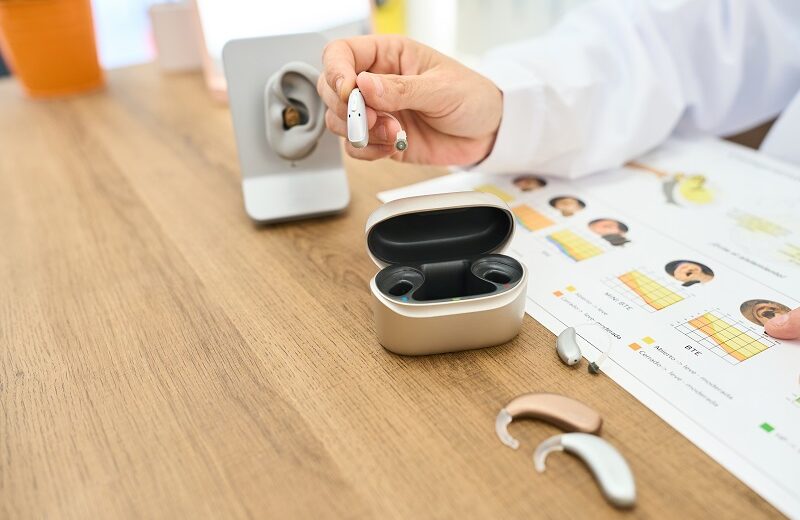Approximately 1 in 8 individuals aged 12 and older in the United States experience hearing issues, according to the NIDCD (National Institute on Deafness and Other Communication Disorders). Understanding the signs of hearing loss is crucial, as is determining the level of impairment that may require the use of a hearing aid.
When Do I Need a Hearing Aid?
The Shape Of The Ear
The anatomical structure of the ear extends beyond the visible outer ear located on the sides of the head. Understanding its components is essential to grasping the complexities of hearing loss.
The Outer Ear
The outer ear consists of the exposed part of the ear and the ear canal, which connects to the middle ear. The ear canal stops at the tympanic membrane, or eardrum, which separates the external ear from the middle ear. An outer ear infection can cause the ear canal to swell, leading to temporary hearing loss. Typically, antibiotic ear drops are sufficient for treatment, although oral antibiotics may be required in more severe cases.
The Middle Ear
The middle ear, located behind the eardrum, contains three small bones: the malleus, incus, and stapes. In a healthy condition, it maintains air and a small amount of fluid. The eustachian tube joins the middle ear to the nasopharynx, enabling drainage and equalizing air pressure. Middle ear infection (Otitis media) is common in young children because the eustachian tube is smaller and less effective, which can trap fluid, viruses, and bacteria. Most infections are viral and resolve spontaneously within a few days, while bacterial infections may require antibiotics. These infections can lead to temporary hearing loss and difficulties in understanding spoken language.
The Inner Ear
The cochlea, located within the inner ear, is the primary organ responsible for hearing. Although hearing loss may arise from complications in the outer, middle, or inner ear, the majority of cases of permanent hearing loss are associated with disorders of the inner ear.
Causes of Hearing Loss
Within the cochlea, delicate hair cells respond to sound waves by vibrating, which transmits auditory signals via the auditory nerve to the brain. Protracted exposure to loud noises, certain medications, and age-related changes can damage these fragile hair cells, which do not regenerate. When these cells can’t vibrate, hearing loss occurs. Some people may have a genetic predisposition to hearing loss that manifests earlier in life than in others.
When Is a Hearing Aid Needed?
Hearing aids can improve communication, safety, and overall quality of life for people with many levels of hearing loss. While the choice to use one is personal, a hearing aid is often recommended when hearing loss begins to interfere with daily activities. For example, if you have moderate hearing loss around 55–60 decibels (dB), you may miss parts of conversations or have trouble hearing softer sounds like whispers or approaching traffic. Even mild hearing loss can make it difficult to engage fully in social settings.
Common signs you may need a hearing aid include:
• Frequently asking people to repeat themselves
• Struggling to follow conversations, especially in noisy environments
• Turning up the TV or music volume higher than usual
• Feeling tired or frustrated after trying to listen for long periods
If you recognize these signs, a professional hearing evaluation can determine the extent of your hearing loss and whether a hearing aid could help you hear more clearly.
Next Steps
If you have concerns about hearing loss, it is advisable to begin with an examination by an ENT specialist to determine whether there is a medical or surgical cause. For instance, if the hearing loss is temporary and attributable to an infection, a brief course of antibiotics may effectively remediate the issue, without the need for hearing aids. Although some causes of hearing loss may not be easily resolved, surgical procedures can help restore hearing.
If your hearing loss is from inner ear damage, it is important to consult an audiologist. They will assess your hearing and determine the severity of the loss. If needed, the audiologist will recommend suitable hearing aids that fit your lifestyle. An ENT can provide guidance on maintenance and make adjustments as you adapt to using the devices.





